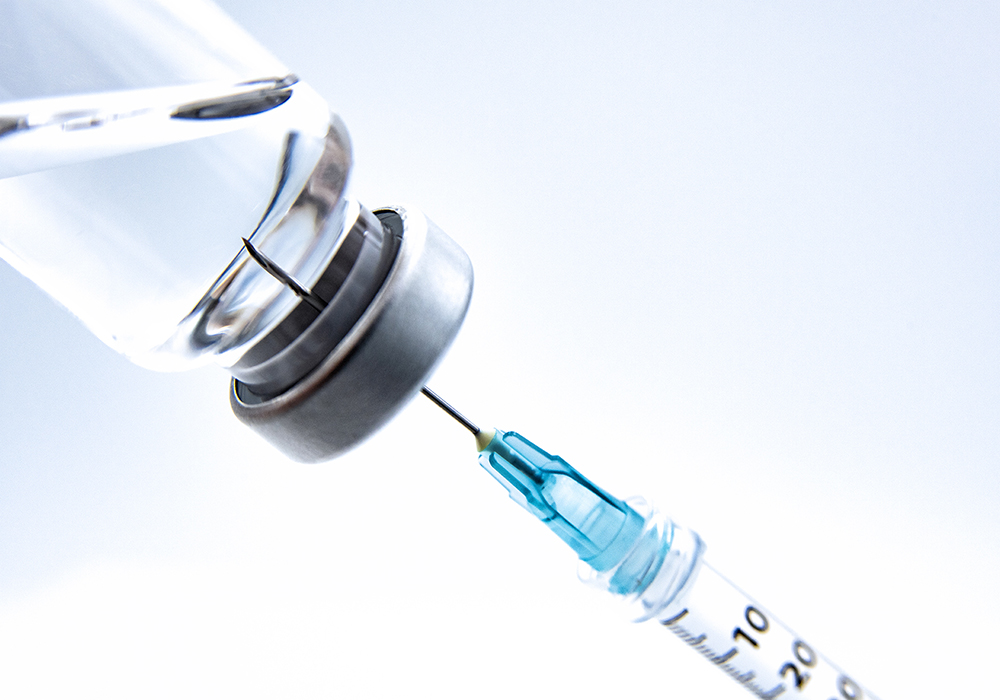Demonstrating a 61% overall response rate with 38% of patients achieving complete response, epcoritamab-bysp (Epkinly™) became the first CD20-bispecific antibody drug available for the treatment of relapsed or refractory diffuse large B-cell lymphoma (DLBCL) when the U.S. Food and Drug Administration (FDA) granted it accelerated approval in May 2023. A phase III trial is currently underway to confirm its clinical benefit compared to the current standard of care for relapsed or refractory DLBCL.
Category/Class
Bispecific CD20-directed CD3 T-cell engager
Mechanism of Action
The drug is a T cell–engaging, bispecific antibody that binds to the CD3 receptor on T cells and the CD20 receptor on the surface of lymphoma cells and healthy B cells. The action releases cytokines and induces B-cell lysis.
Indication
Adult patients with relapsed or refractory DLBCL or high-grade B-cell lymphoma who have received two or more lines of systemic therapy
Dosing
Epcoritamab-bysp follows a step-up dosing schedule:
| Cycle | Day(s) | Dose |
| 1 | 1 | 0.16 mg (step-up dose 1) |
| 8 | 0.8 mg (step-up dose 2) | |
| 15* | 48 mg (first full dose) | |
| 22 | 48 mg | |
| 2–3 | 1, 8, 15, and 22 | 48 mg |
| 4–9 | 1 and 15 | 48 mg |
| 10 and beyond | 1 | 48 mg |
*Monitor patients for 24 hours following the full dose on cycle 1, day 15, for signs and symptoms of cytokine release syndrome (CRS; see sidebar) and neurotoxicities.
Administration
Give as a subcutaneous injection, preferably in the lower abdomen or thigh and alternating from left to right side, in 28-day cycles until patients experience disease progression or dose-limiting toxicities.
Premedications can help reduce the risk of CRS:
| Cycle | Patients Requiring Premedication | Premedication | Administration |
| 1 | All patients | Prednisolone (100 mg oral or IV) or dexamethasone (15 mg oral or IV) or equivalent | Give 30–120 minutes prior to each weekly administration and for three consecutive days following each weekly administration. |
| 1 | All patients | Diphenhydramine (50 mg oral or IV) or equivalent plus acetaminophen (650–1,000 mg oral) | Give 30–120 minutes prior to each weekly administration. |
| Cycle 2+ | Patients who experienced grade 2 or 3 CRS with previous dose | Prednisolone (100 mg oral or IV) or dexamethasone (15 mg oral or IV) or equivalent | Give 30–120 minutes prior to the next administration and for three consecutive days after administration. Continue to administer premedications with future epcoritamab-bysp cycles and doses until the patient does not have a subsequent grade 2 or higher CRS. |
Adverse Reactions
The package insert has a boxed warning for the risk of CRS (see sidebar) and immune effector cell-associated neurotoxicity syndrome (ICANS). Epcoritamab-bysp has also been associated with serious or severe cytopenias including neutropenia, anemia, and thrombocytopenia leading to serious and fatal infections, the most common being sepsis, COVID-19, urinary tract infection, pneumonia, and upper respiratory infections.
The most common adverse events reported in the drug’s clinical trials were CRS, fatigue, pain and reaction at the injection site, fever, abdominal pain, nausea, and diarrhea. Patients are permanently discontinued from epcoritamab-bysp after a grade 4 CRS.
Nursing Considerations
Ensure the correct dose and any applicable premedication are ordered based on dosage schedules. Because of the risk for CRS, ICANS, and neurotoxicities, monitor patients for 24 hours after administration of the first full 48 mg dose on cycle 1, day 15, and continually monitor all patients for:
- Fever, hypotension, hypoxia, dyspnea, chills, and tachycardia
- Headache, confusion, tremors, dizziness, and ataxia
- Lethargy, tremor, dysgraphia, aphasia, and nonconvulsive status epilepticus
Administer supportive therapy, which may require intensive care, for suspected CRS or ICANS.
Monitor the injection site for signs of reaction, including redness, bruising, or tenderness. Treatment modifications may be required for patient response or adverse reactions.
Patient Education
Teach patients about the risk for CRS, ICANS, cytopenias, infection, and embryo-fetal toxicities. Advise patients of reproductive potential to use contraception during treatment and for four months following the last dose. Educate patients about the symptoms of neurotoxicities and to avoid driving or operating heavy machinery until symptoms resolve. Educate patients about the signs and symptoms of infection and when to contact their healthcare professional.
Special Considerations
During epcoritamab-bysp’s clinical trials, no clinically significant pharmacokinetics differences were reported related to age, sex, race, mild to moderate renal impairment, and mild hepatic impairment. The drug may cause fetal harm when administered to pregnant patients.
Safe Handling
Epcoritamab-bysp can cause embryo-fetal toxicity. Use hazardous drug precautions.
Patient Assistance
Visit MyNavCare.com or call 866-628-2271.






